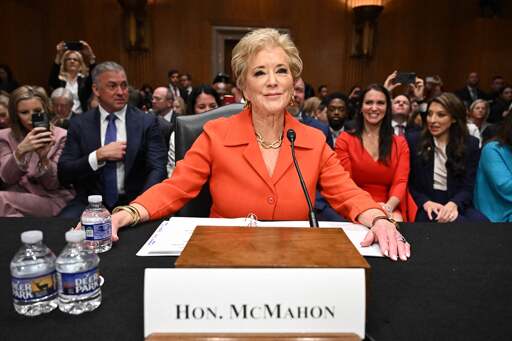Blunt Rochester: Do you believe that any school benefiting from taxpayer dollars should be required to follow federal civil rights laws?
McMahon: Schools should be required to follow the laws.
Blunt Rochester: Anybody getting taxpayer dollars. That’s good. So private schools shouldn’t be able to turn away a student with a disability? Or a student based on their religion, or their ethnicity or race?
McMahon: Well, private schools aren’t taking federal dollars. So they have the ability to say that if they do not believe—
Blunt Rochester: They do receive them. They should not.
McMahon: Well, if they believe that they cannot best serve that student, and they are not taking federal dollars, then they have the right not to accept that student.
Blunt Rochester: But I’m speaking specifically, when we talk about—there’s a lot of conversation about vouchers. If private schools take federal dollars, can they turn away a child based on a disability or religion or race?
McMahon: Well I think that there are also some public schools who are saying that they don’t have the—
Blunt Rochester: It’s really just a yes or no.
McMahon: No it’s not. It really isn’t.
Unfortunately, Blunt Rochester, rather than pressing McMahon, asked the nominee to follow up with her privately, noting her limited time for questioning. But this was one of the most pointed moments of the day, and it got to a very urgent question in education: How can a government claim to represent all its citizens if the private schools it sends money to turn out to be discriminatory, or to teach damaging or anti-scientific curricula? How can it fund schools freed from federal oversight and still protect the rights of vulnerable children who won’t be naturally welcomed into those alternate institutions? Whether it is because the senators rushed through this line of questioning or because McMahon stonewalled successfully, we never got an answer.



Oh a clever tete a tete! That will surely keep this hideous creature from being appointed!